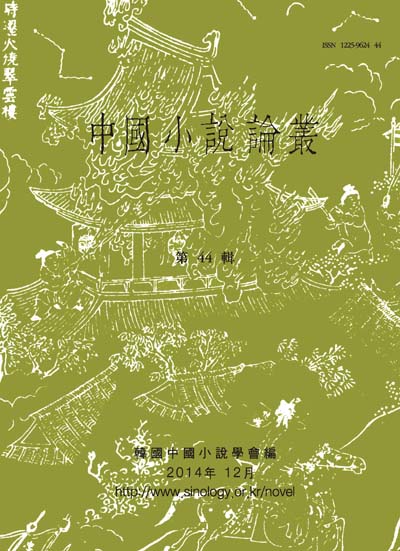학술논문
《丁莊夢》에 나타난 ‘꿈’의 서사전략
이용수 44
- 영문명
- ‘Dream’ of Narrative Strategy in Dream of Ding Village
- 발행기관
- 한국중국소설학회
- 저자명
- 김봉연
- 간행물 정보
- 『중국소설논총』제37집, 225~241쪽, 전체 17쪽
- 주제분류
- 인문학 > 문학
- 파일형태
- 발행일자
- 2012.08.30
4,840원
구매일시로부터 72시간 이내에 다운로드 가능합니다.
이 학술논문 정보는 (주)교보문고와 각 발행기관 사이에 저작물 이용 계약이 체결된 것으로, 교보문고를 통해 제공되고 있습니다.

국문 초록
영문 초록
The purpose of this paper is to present reflections on the various meaning of “dream” in Yanlianke’s novel Dream of Ding Village. Dream of Ding Village portrays the tragic realities of poor rural China that underly glamorous capitalism and is depicted through the lens of dreams. Capitalism did not exist even in minimal fashion in rural China, and selling blood became a way to like a shampoo and fertilizer, the bare necessities of life. The “dream” then was not a simple metaphor for unreality but can be perceived as the author’s desire to precisely expose harsh realities of rural China where the expenditure of the body through selling blood ironically became the only way to retain and sustain life. Thus, while “dream” denotes hopes of wealth and prosperity gained through selling blood, it is no more than a vain pipe dream that can never be realized. In this light, the “dream” which represents a figment of reality and not mere fantasy allows a glimpse into the volatile life that existed below the glamorous capitalist surface. In this sense, the “dream” in the novel signifies wealth and hope for the future but also the augmentation of the realization of a new socialist society. If development and advancement is the outward outcome of capitalism, then the side effect in the rural regions includes the failure to contain AIDS patients in a quarantined school. In this harsh reality, the “dream” represents not only an impossible dream, but it points to the representation of a new hopeful future.
In this novel, the dead grandson emerges as the narrator, and he speaks of selling blood in Ding’s Village. This third person’s voice asthe speaker makes it difficult to discern reality from fantasy. Because the grandson is speaking on behalf of his grandfather’s dream, it is partially based in reality but also unreality. It presents a dichotomy that if this dream is indeed reality, then the reality can also become fantasy. In addition, the father’s generation which represents capitalism is missing from the novel, and that is the context of the creation of the Ding Village. Furthermore, this novel bridges two generations, one of the grandfather’s generation which signifies socialism and that of the grandson’s generation. While critics describe this novel as a solicitation of penance for material desire or an acute report on the realities of poor rural China, this writer postulates that it goes beyond the aforementioned descriptions as a propaganda of socialistic ideology; hence, it is part of an effort to recall the early socialist era as a way to tighten and narrow the rich-poor gap and the disparity in current China.
목차
1. 들어가는 말
2. 기법으로서의 ‘꿈’ - 현실과 환상의 양립가능성 모색
3. 은유로서의 ‘꿈’ - 실현 불가능한 허상
4. 시점으로서의 ‘꿈’ - 죽은 손자가 대언하는 할아버지의 참회
5. 나오는 말
〈參考文獻〉
〈Abstract〉
해당간행물 수록 논문
참고문헌
교보eBook 첫 방문을 환영 합니다!

신규가입 혜택 지급이 완료 되었습니다.
바로 사용 가능한 교보e캐시 1,000원 (유효기간 7일)
지금 바로 교보eBook의 다양한 콘텐츠를 이용해 보세요!





